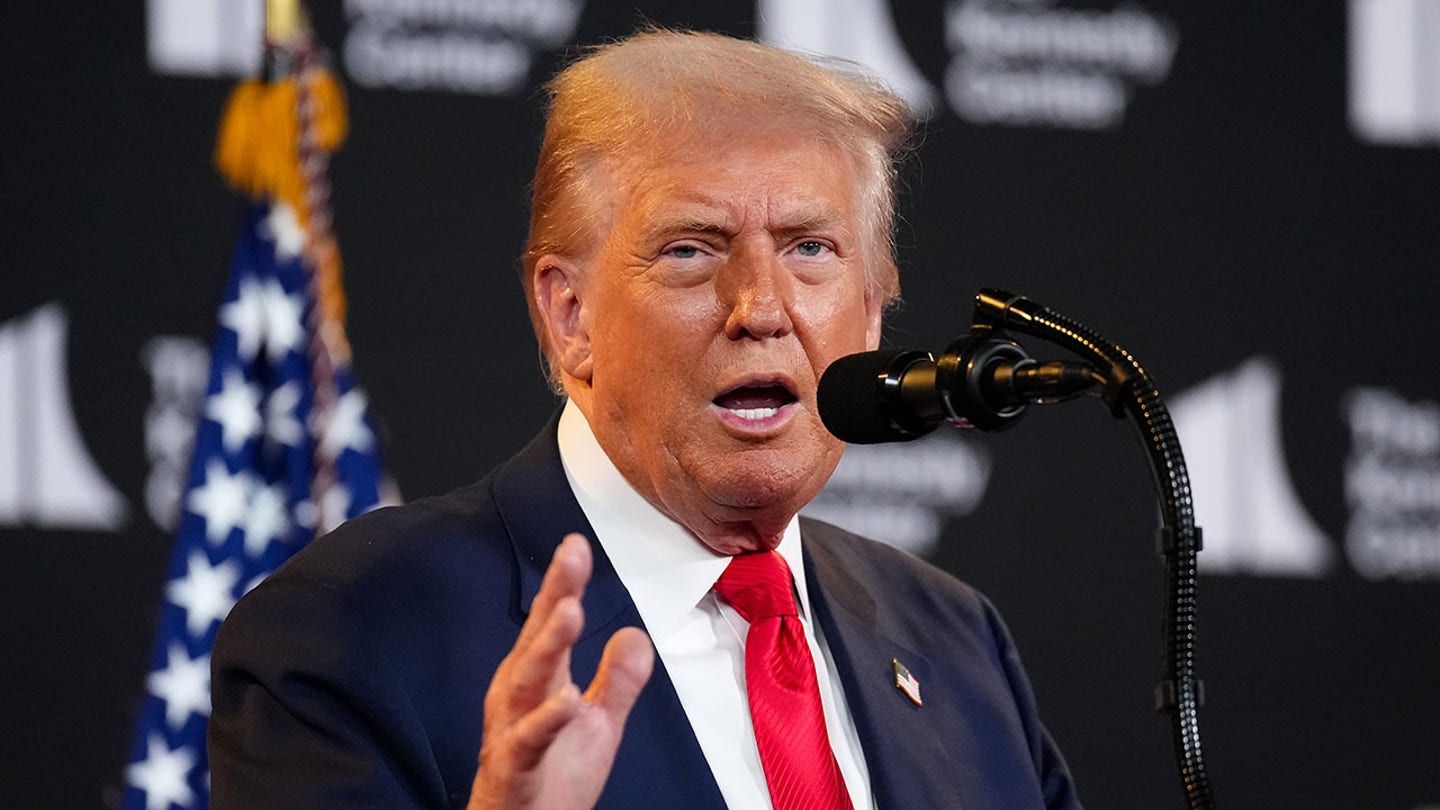
World Series champ Mark Teixeira takes swing at Dems as government shuts down
Entities mentioned:
- Mark Teixeira: Competitive spirit, Righteousness, Ambition
- Democratic Party: Power, Control, Influence
- Republican Party: Determination, Loyalty, Competitive spirit
- President Donald Trump: Power, Competitive spirit, Control
- Chuck Schumer: Power, Influence, Self-preservation
Article Assessment:
Credibility Score: 65/100
Bias Rating: 75/100 (Lean Right)
Sentiment Score: 30/100
Authoritarianism Risk: 45/100 (Mixed/Neutral)
Bias Analysis:
The article leans right, primarily quoting Republican figures and framing Democrats negatively. It presents GOP viewpoints more prominently and extensively than Democratic perspectives.
Key metric: Government Functionality
Let me tell you something, folks - this political game is heating up like a World Series showdown! Former Yankees slugger Mark Teixeira is stepping up to the plate in a whole new ballgame, taking a major league swing at the Democrats. This shutdown situation is like extra innings in a high-stakes match, with both teams refusing to blink. The Republicans are playing defense, trying to hold the line, while the Democrats are pushing for a game-changing play. President Trump, the veteran coach, is signaling some aggressive strategies from the dugout. It's a full-count situation for our government, and Teixeira's joining the roster as a pinch hitter for the GOP. This is the kind of fourth-quarter drama that can make or break a season, folks! The Democrats better watch out, because Teixeira's bringing that championship mentality to the political arena. It's anyone's game, and the clock is ticking!

'Weapons of war': Dem lawmakers call for gun control after Minneapolis school shooting
Entities mentioned:
- Chuck Schumer: Moral outrage, Justice, Security
- Hakeem Jeffries: Moral outrage, Security, Justice
- Shri Thanedar: Moral outrage, Justice, Security
- Brian O'Hara: Duty, Security, Professional pride
- Tom Emmer: Duty, Empathy, Security
- Tina Smith: Moral outrage, Security, Empathy
- Amy Klobuchar: Justice, Security, Moral outrage
Article Assessment:
Credibility Score: 75/100
Bias Rating: 45/100 (Center)
Sentiment Score: 25/100
Authoritarianism Risk: 30/100 (Generally Democratic)
Bias Analysis:
The article presents statements from both Democratic and Republican lawmakers, providing a somewhat balanced view. However, there is more emphasis on Democratic calls for gun control, which slightly tilts the perspective.
Key metric: Gun Violence Incidence Rate
As a social scientist, I analyze that this article highlights the immediate political response to a school shooting incident, specifically focusing on calls for gun control from Democratic lawmakers. The shooting at Annunciation Catholic School in Minneapolis has reignited the debate on gun violence and school safety. Democratic leaders are using this tragedy to push for stricter gun control measures, framing it as a public safety and child protection issue. The responses from Republican representatives are more restrained, offering prayers without mentioning policy changes. This polarization reflects the ongoing partisan divide on gun control issues in the United States. The incident's impact on the Gun Violence Incidence Rate is likely to be significant, as school shootings tend to intensify public discourse and potentially influence policy decisions regarding gun control and school safety measures.

Dem lawmakers call for gun control after Minneapolis school shooting
Entities mentioned:
- Chuck Schumer: Moral outrage, Justice, Security
- Hakeem Jeffries: Moral outrage, Security, Justice
- Shri Thanedar: Moral outrage, Justice, Security
- Brian O'Hara: Duty, Security, Professional pride
- Tom Emmer: Duty, Empathy, Unity
- Tina Smith: Security, Moral outrage, Justice
- Amy Klobuchar: Justice, Security, Moral outrage
Article Assessment:
Credibility Score: 75/100
Bias Rating: 55/100 (Center)
Sentiment Score: 25/100
Authoritarianism Risk: 30/100 (Generally Democratic)
Bias Analysis:
The article presents views from both Democratic and Republican lawmakers, though it gives more space to Democratic perspectives on gun control. It maintains a factual tone while reporting on a sensitive issue, balancing political commentary with factual details about the incident.
Key metric: Gun Violence Incidents
As a social scientist, I analyze that this article highlights the immediate political response to a school shooting incident, particularly from Democratic lawmakers pushing for stricter gun control measures. The incident has reignited the ongoing debate about gun violence in America, especially in schools. Democratic leaders are using this tragedy to emphasize the need for legislative action, framing it as a matter of public safety and child protection. The Republican response, represented by Tom Emmer, focuses on offering prayers and support without mentioning gun control, illustrating the partisan divide on this issue. The article also shows how such incidents can quickly become politicized, with lawmakers using them to reinforce their policy positions. The impact on gun violence incidents as a metric is likely to be short-term increased attention to the issue, potentially leading to renewed calls for policy changes, but without immediate concrete effects on the metric itself.

How AOC built a Democratic fundraising juggernaut
Entities mentioned:
- Alexandria Ocasio-Cortez: Influence, Power, Recognition
- Democratic Party: Unity, Control, Power
- Bernie Sanders: Righteousness, Justice, Influence
- Faiz Shakir: Loyalty, Influence, Professional pride
- Waleed Shahid: Influence, Righteousness, Change
- David Axelrod: Analysis, Recognition, Influence
- Oliver Hidalgo-Wohlleben: Loyalty, Professional pride, Duty
- Zohran Mamdani: Ambition, Recognition, Influence
- Chuck Schumer: Power, Control, Legacy
Article Assessment:
Credibility Score: 75/100
Bias Rating: 45/100 (Center)
Sentiment Score: 65/100
Authoritarianism Risk: 25/100 (Generally Democratic)
Bias Analysis:
The article presents a balanced view of AOC's fundraising success, including perspectives from various political strategists. While it highlights her achievements, it also includes neutral observations about potential implications, maintaining a centrist stance.
Key metric: Democratic Party Fundraising and Voter Engagement
As a social scientist, I analyze that this article highlights a significant shift in the Democratic Party's fundraising dynamics, with Alexandria Ocasio-Cortez emerging as a formidable force in small-dollar donations. This trend indicates a potential realignment of power within the party, moving away from traditional big donors towards a more grassroots-funded model. The success of AOC's fundraising strategy, particularly in conjunction with Bernie Sanders, suggests a growing appetite among Democratic voters for more progressive policies and candidates. This could have far-reaching implications for the party's future direction, candidate selection, and policy priorities. The article also hints at the possibility of AOC's future political aspirations, including potential presidential ambitions, which could further reshape the Democratic landscape. The emphasis on small-dollar donations and grassroots support aligns with a broader trend of populist politics and could influence how future campaigns are run and financed across the political spectrum.

'Separated from reality': Senate Republicans fume as Dems use Epstein saga to block Trump's agenda
Entities mentioned:
- Senate Republicans: Determination, Frustration, Duty
- Congressional Democrats: Moral outrage, Justice, Control
- President Donald Trump: Power, Self-preservation, Influence
- Mike Johnson: Self-preservation, Control, Wariness
- Chuck Schumer: Moral outrage, Justice, Power
- Roger Marshall: Loyalty, Frustration, Righteousness
Article Assessment:
Credibility Score: 65/100
Bias Rating: 65/100 (Lean Right)
Sentiment Score: 30/100
Authoritarianism Risk: 45/100 (Mixed/Neutral)
Bias Analysis:
The article leans right in its framing, giving more space to Republican viewpoints and criticisms of Democrats. While it includes some Democratic perspectives, the tone and language used tend to favor the Republican stance on the issue.
Key metric: Government Effectiveness
As a social scientist, I analyze that this article highlights a significant political gridlock in the U.S. Senate, primarily centered around the Jeffrey Epstein case and its impact on the confirmation of presidential nominees. The Republicans' attempts to push through nominees are being obstructed by Democrats, who are using the Epstein saga as leverage. This impasse is affecting the government's ability to function efficiently, as key positions remain unfilled. The situation also reveals deep partisan divides, with each side accusing the other of ulterior motives. Republicans claim Democrats are obstructing progress, while Democrats argue for transparency in the Epstein case. This political maneuvering is likely to have a negative impact on government effectiveness, as it hinders the administration's ability to fully staff key positions and implement its agenda.

Trump threatens lawsuit over 'blue slips' as top GOP senator bucks demand to bend Senate rules for nominees
Entities mentioned:
- Donald Trump: Power, Control, Ambition
- Chuck Grassley: Duty, Professional pride, Loyalty
- Senate Democrats: Control, Competitive spirit, Influence
- Chuck Schumer: Power, Influence, Competitive spirit
- Cory Booker: Influence, Control, Loyalty
- Andy Kim: Influence, Control, Loyalty
- Alina Habba: Ambition, Power, Recognition
- Pam Bondi: Power, Control, Loyalty
Article Assessment:
Credibility Score: 75/100
Bias Rating: 55/100 (Center)
Sentiment Score: 35/100
Authoritarianism Risk: 65/100 (Authoritarian Tendencies)
Bias Analysis:
The article presents multiple viewpoints, including Trump's criticisms and Grassley's defenses. While it gives slightly more space to Trump's perspective, it balances this with context and opposing views, maintaining a relatively centrist position.
Key metric: Judicial Appointment Efficiency
As a social scientist, I analyze that this article highlights a significant conflict between the executive and legislative branches over the judicial appointment process. The 'blue slip' tradition, while not law, has become a point of contention that impacts the efficiency and partisan nature of judicial appointments. Trump's threat to sue over this practice indicates an escalation in the power struggle between the presidency and the Senate. This conflict has the potential to alter long-standing Senate traditions and could lead to increased polarization in the judicial nomination process. The resistance from Senator Grassley, a member of Trump's own party, demonstrates the complexity of this issue and the tension between party loyalty and institutional norms.

House GOP Oversight panel subpoenas Epstein estate for ‘birthday book,’ other documents
Entities mentioned:
- House Oversight Committee: Justice, Duty, Righteousness
- Jeffrey Epstein: Power, Control, Greed
- Donald Trump: Self-preservation, Reputation, Power
- James Comer: Duty, Justice, Ambition
- Alexander Acosta: Self-preservation, Professional pride, Duty
- Chuck Schumer: Moral outrage, Justice, Political influence
- Robert Garcia: Justice, Duty, Moral outrage
Article Assessment:
Credibility Score: 75/100
Bias Rating: 55/100 (Center)
Sentiment Score: 35/100
Authoritarianism Risk: 25/100 (Generally Democratic)
Bias Analysis:
The article presents a relatively balanced view, including perspectives from both Republican and Democratic members of the committee. While it mentions Trump's denial and lawsuit, it also includes critical views of his administration's handling of the Epstein case.
Key metric: Government Accountability
As a social scientist, I analyze that this investigation into Jeffrey Epstein's estate and associates represents a significant effort to enhance government accountability and transparency. The House Oversight Committee's actions, including subpoenaing Epstein's estate and scheduling an interview with Alexander Acosta, demonstrate a push for a more comprehensive understanding of Epstein's network and the handling of his case. This could potentially impact public trust in government institutions and the justice system. The bipartisan nature of the inquiry, with both Republicans and Democrats actively involved, suggests a united front in addressing this high-profile case. However, the political implications, especially concerning former President Trump, add complexity to the investigation's reception and potential outcomes. The focus on documents like the 'birthday book' and potential client lists indicates an attempt to uncover the full extent of Epstein's influence and activities, which could have far-reaching consequences for various public figures and institutions.

Capitol Hill prepares for high-stakes battle over Trump crime package, DC police authority
Entities mentioned:
- Donald Trump: Power, Control, Legacy
- Lindsey Graham: Loyalty, Influence, Professional pride
- Pam Bondi: Duty, Professional pride, Loyalty
- Katie Britt: Professional pride, Duty, Influence
- Chuck Schumer: Moral outrage, Opposition, Power
- Dick Durbin: Moral outrage, Opposition, Justice
- Republicans: Loyalty, Power, Control
- Democrats: Opposition, Justice, Freedom
Article Assessment:
Credibility Score: 70/100
Bias Rating: 55/100 (Center)
Sentiment Score: 35/100
Authoritarianism Risk: 65/100 (Authoritarian Tendencies)
Bias Analysis:
The article presents views from both Republican and Democratic sides, but gives slightly more space to Republican perspectives. It includes direct quotes from both parties, maintaining a relatively balanced approach despite the controversial nature of the topic.
Key metric: Crime Rate in Washington D.C.
As a social scientist, I analyze that this article highlights a growing political conflict over control of Washington D.C.'s law enforcement. President Trump's proposed crime package and desire to extend control over D.C. police signify a push for federal intervention in local affairs, framed as a necessary step to reduce crime. This move is supported by Republicans but strongly opposed by Democrats, who view it as an overreach of executive power. The conflict reflects broader tensions between federal and local authority, as well as partisan divides on approaches to crime and governance. The potential use of emergency powers to bypass Congress further escalates the situation, raising concerns about the balance of power and democratic processes. This conflict could significantly impact D.C.'s crime rates and policing practices, depending on which approach prevails.

Trump predicts little progress in potential shutdown talks with 'crazy' Schumer, Jeffries
Entities mentioned:
- Donald Trump: Power, Control, Self-preservation
- Chuck Schumer: Opposition, Duty, Influence
- Hakeem Jeffries: Opposition, Duty, Influence
- John Thune: Duty, Professional pride, Unity
- Congressional Democrats: Opposition, Justice, Influence
- Congressional Republicans: Control, Power, Competitive spirit
Article Assessment:
Credibility Score: 70/100
Bias Rating: 55/100 (Center)
Sentiment Score: 30/100
Authoritarianism Risk: 40/100 (Generally Democratic)
Bias Analysis:
The article presents views from both Republican and Democratic perspectives, including direct quotes. However, it gives slightly more prominence to Trump's comments and Republican actions, while Democratic responses are somewhat less emphasized.
Key metric: Government Stability and Functionality
As a social scientist, I analyze that this article highlights the deep political divide and dysfunction in the U.S. government, particularly concerning budget negotiations. The looming threat of a government shutdown underscores the inability of both parties to work together effectively. Trump's dismissive attitude towards negotiations with Democratic leaders suggests a breakdown in bipartisan cooperation. This situation negatively impacts government stability and functionality by creating uncertainty, potentially leading to disruptions in government services and damaging public trust in political institutions. The partisan nature of recent budget decisions, such as the Republican-led clawback package, has further strained relations between the parties, making future negotiations more difficult. This cycle of mistrust and partisan maneuvering threatens the government's ability to operate efficiently and serve the public interest.

Trump gets what he wants in DC crackdown as Democrats fumble response
Entities mentioned:
- Donald Trump: Power, Control, Influence
- Democratic Party: Justice, Unity, Self-preservation
- Chuck Schumer: Righteousness, Duty, Indignation
- Hakeem Jeffries: Righteousness, Duty, Indignation
- Jamie Raskin: Justice, Righteousness, Moral outrage
- Chuck Rocha: Professional pride, Influence, Unity
- Wes Moore: Professional pride, Duty, Justice
- Karoline Leavitt: Loyalty, Duty, Control
Article Assessment:
Credibility Score: 75/100
Bias Rating: 45/100 (Center)
Sentiment Score: 35/100
Authoritarianism Risk: 55/100 (Mixed/Neutral)
Bias Analysis:
The article presents multiple perspectives, including critiques of both Trump and Democrats. While it leans slightly critical of Trump's approach, it also highlights Democratic shortcomings, maintaining a relatively balanced view.
Key metric: Public Safety and Crime Rate
As a social scientist, I analyze that this article highlights the complex political dynamics surrounding crime and public safety in Washington D.C. Trump's aggressive approach to crime in the capital city exposes the Democrats' struggle to effectively counter his law-and-order rhetoric. The article suggests that Democrats are failing to address voters' immediate concerns about safety, instead focusing on criticizing Trump's authoritarian tendencies. This political maneuvering impacts public safety perceptions and potentially actual crime rates, as it may lead to short-term, politically motivated actions rather than sustainable, evidence-based policies. The article also points to a broader issue of partisan polarization hindering effective governance and problem-solving in addressing complex social issues like crime.